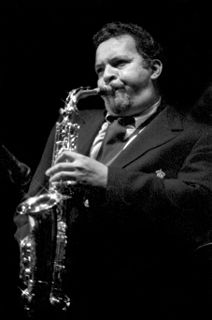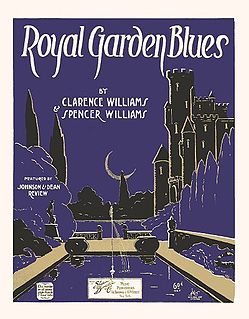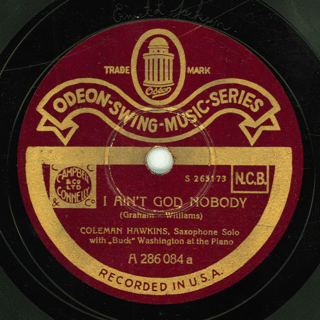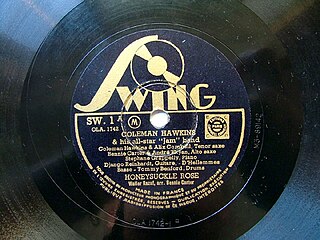
John Lenwood "Jackie" McLean was an American jazz alto saxophonist, composer, bandleader, and educator, and is one of the few musicians to be elected to the DownBeat Hall of Fame in the year of their death.
Alphonso Son "Dizzy" Reece is a Jamaican-born hard bop jazz trumpeter. Reece is among a group of jazz musicians born in Jamaica which includes Bertie King, Joe Harriott, Roland Alphonso, Wilton Gaynair, Sonny Bradshaw and Tommy McCook, trombonist Don Drummond, pianist Monty Alexander, bassist Coleridge Goode, guitarist Ernest Ranglin and percussionists Count Ossie and Lloyd Knibb.
British jazz is a form of music derived from American jazz. It reached Britain through recordings and performers who visited the country while it was a relatively new genre, soon after the end of World War I. Jazz began to be played by British musicians from the 1930s and on a widespread basis in the 1940s, often within dance bands. From the late 1940s British "modern jazz", highly influenced by American bebop, began to emerge and was led by figures such as John Dankworth and Ronnie Scott, while Ken Colyer, George Webb and Humphrey Lyttelton emphasised New Orleans, Trad jazz. From the 1960s British jazz began to develop more individual characteristics and absorb a variety of influences, including British blues, as well as European and World music influences. A number of British musicians have gained international reputations, although this form of music has remained a minority interest within the UK itself.
Polish jazz has a history that spans periods of both acceptance and political repression.
Dutch jazz refers to the jazz music of the Netherlands. The Dutch traditionally have a vibrant jazz scene as shown by the North Sea Jazz Festival as well as other venues.
Patrick Mungo Smythe was a jazz pianist who rose to prominence as a member of the Joe Harriott Quintet during the 1960s.

This is a timeline documenting events of Jazz in the year 1944.

This is a timeline documenting events of Jazz in the year 1926.
Danish Jazz goes back to 1923 when Valdemar Eiberg formed a jazz orchestra and recorded what are thought to be the first Danish jazz records in August 1924. However, jazz in Denmark is typically first dated to 1925, when bandleader Sam Wooding toured in Copenhagen with an orchestra. This was the first time most Danes had heard jazz music. Some prominent early Danish jazz musicians include Erik Tuxen who formed a jazz band and later was named conductor of the Danish Radio Symphony Orchestra; Bernhard Christensen, an art music composer who incorporated jazz elements into his pieces, and Sven Møller Kristensen, who was the lyricist for many of Bernhard Christensen's pieces and who wrote a book on jazz theory in Danish.

This is a timeline documenting events of Jazz in the year 1930.

This is a timeline documenting events of Jazz in the year 1941.

This is a timeline documenting events of Jazz in the year 1920.

This is a timeline documenting events of Jazz in the year 1922.

This is a timeline documenting events of Jazz in the year 1919.

This is a timeline documenting events of Jazz in the year 1923.

This is a timeline documenting events of Jazz in the year 1928.

This is a timeline documenting events of Jazz in the year 1934.

This is a timeline documenting events of Jazz in the year 1937.

This is a timeline documenting events of Jazz in the year 1939.
This is a timeline documenting events of Jazz in the year 1911.














